There are, broadly, two kinds of digital nomads.
First, the roamers: people who want to see the world while working remotely—on a company contract or by stitching together freelance work like streaming, copywriting, design, or translation. They move for lifestyle, not tax planning.
Then there are the builders: people who relocate to grow a business with a view to sell later—ideally where capital gains aren’t heavily taxed and day-to-day income isn’t taxed like it is in places such as France or Denmark (often 50%+ on personal income) or Norway (which also taxes wealth).
They aren’t looking to “game” the system; they want economic breathing room so that, when they finally sell, they don’t hand over more than half.
We wanted to test how this works in real life. So my partner and I moved to English-speaking Malta—often labeled a low-tax outlier in Europe—to see how the rules feel on the ground.
What follows is a clear, practical guide to the options we explored across Europe for the best low-tax places for online businesses, with notes on residency routes and how income, dividends, and capital gains are treated.
We also spoke with local business founders and working nomads to hear what the spreadsheets miss: the noise levels, the paperwork, the internet speeds, and whether a place still feels like home after the honeymoon phase.
Best European Countries With Low Tax & Capital Gains for Businesses
Malta

Malta is sunny, compact, and English is spoken everywhere. Valletta and Sliema feel like one big walkable town, with quick flights across Europe. Sliema and St. Julian’s get especially lively in summer (but it can be a bit too hot), with short-term rentals and language students filling the streets—great if you like a busy atmosphere, though it can mean night noise. Malta is a popular low-tax country among igaming entrepreneurs, digital businesses, and online streamers.
Residency Basics
- EU citizens: You register locally by showing proof you can support yourself financially and that you hold private health insurance.
- Non-EU citizens: The Nomad Residence Permit (NRP) is open to remote workers earning at least €42,000 gross per year. It’s issued for one year and can be renewed.
How Taxes Work
Malta follows a remittance system. In practice:
- Income earned inside Malta is taxed.
- Income earned outside Malta is taxed only if you bring it into the country.
- Foreign capital gains (such as selling property or shares abroad) are never taxed, even if the money is transferred to Malta.
Examples:
A flower kiosk in Valletta pays local income tax, which can reach 35%.
An online streamer earning from viewers abroad does not pay corporate or income tax in Malta if the money stays outside the country.
An investor selling shares overseas can transfer those profits into Malta without paying any Maltese tax, since foreign capital gains are excluded.
Minimum Tax & Special Rate Option
If you live in Malta but are classed as non-domiciled, and you earn more than €35,000 abroad, you must pay at least €5,000 in annual tax. This rule doesn’t apply if you are covered by specific schemes, such as the Malta Residence Programme.
Under the Tax Residence Programme (TRP), foreign income you bring into Malta is taxed at 15%, with a minimum of €15,000 per year.
Without this program, standard income tax rates apply, up to 35%.
Key Points
- EU citizens can obtain residency by showing funds and health insurance.
- English is the main working language.
- Only Maltese income is always taxed; foreign income is taxed only when brought in.
- Foreign capital gains are entirely tax-free.
- TRP allows a 15% flat rate on remitted foreign income.
Locals Insider spoke with a founder from the iGaming industry who relocated to Malta three years ago with the goal of building and eventually selling a tech company. Here’s how he described the experience:
“We moved to Malta three years ago in hope to build and sell a tech company. Mediterranean Sea, 24/7 service, cheap Prosecco, mussels, nice vibes. The first year was euphoria.
We spent a lot of money on renting until we realized that the prices are very high here on properties. Even apartments can cost $3,000, $4,000, $5,000.
Anywhere we lived — St. Julian, Sliema, Mellieha — everywhere was the same. Noise, because a lot of Airbnbs around, tourists, and garbage on the streets.
Tax-wise, it’s great. Zero dividend tax, zero tax on the money you make not in Malta. So we basically paid €5,000 each a year. Internet is cheap. The conditions are good here. This is an LGBT-friendly location, very well connected to Europe with cheap flights to Italy, to Dubai. Dubai is not a cheap flight. Only Emirates operates.
After three years, it’s enough. We calculated basically the tax we would pay in our home country we almost paid here for rentals and funds. The plus is that there is no Exit tax when leaving.“
Cyprus
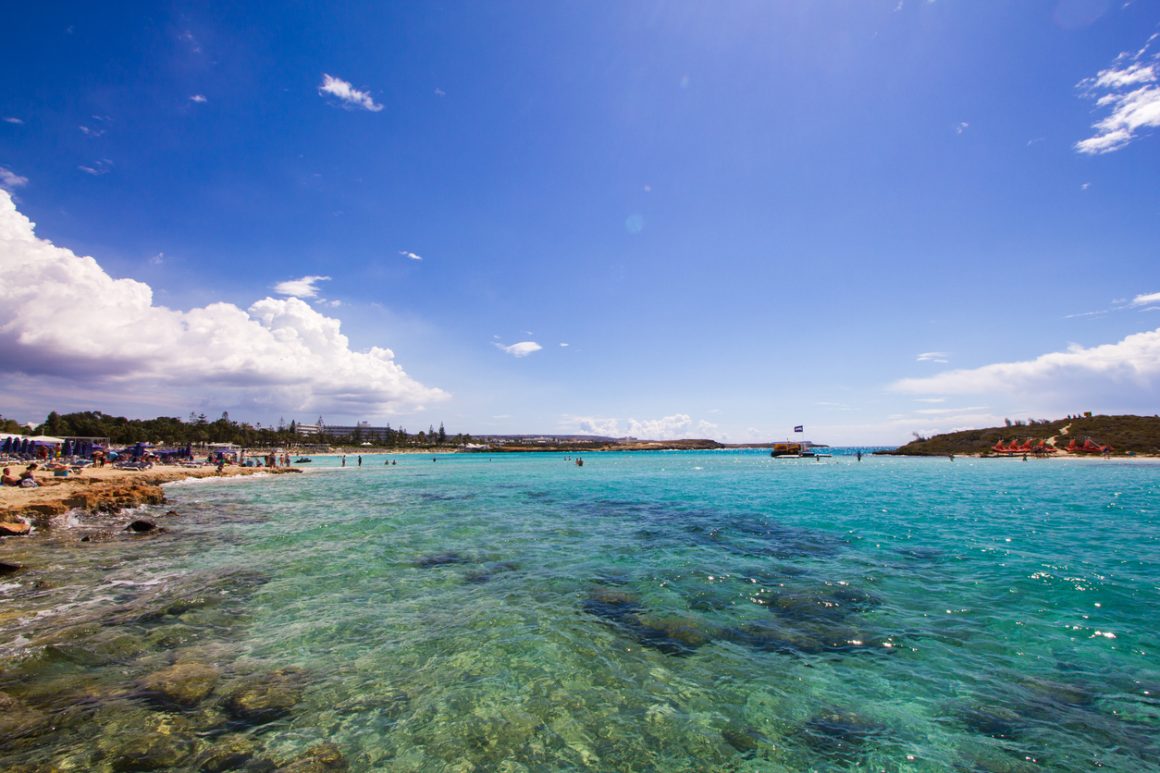

Cyprus is one of the best (and affordable) countries for starting and doing business in a low-tax regime. The island combines seaside living with an active expat community. Limassol and Paphos are popular bases, both with reliable fiber internet. The island has nice hiking routes, modern apartment blocks with good infrastructure, and spa hotels. Flights connect the island to much of Europe and the Middle East, and daily life is more affordable than in most Western European capitals.
Residency Basics
- EU citizens: You need to apply for the Yellow Slip (MEU1) within four months of arrival. To qualify, you show proof of work, savings, or that you can support yourself financially, plus private health insurance.
- Non-EU citizens: The Digital Nomad Visa is available to remote workers with employers or clients abroad. Minimum income is €3,500 per month (net, after tax). The visa starts with 1 year and can be extended.
How Taxes Work
Cyprus runs a non-dom system that’s attractive for expats. In practice:
- Dividends and bank interest: Exempt from the Special Defence Contribution (SDC) for up to 17 years if you are tax resident but not domiciled.
- Rental income: Also exempt from SDC for non-doms.
- Personal income tax (PIT): Progressive rates, starting at 0% up to €19,500, then rising in bands up to 35%.
- Health contributions (GHS): A small levy applies, usually 2.65% capped on income.
Examples:
If you work for a local employer in Nicosia, your salary is taxed under the progressive PIT system—no tax on the first €19,500, then higher rates as your income increases.
If you hold shares in a foreign company and receive dividends, as a non-dom resident you pay 0% tax on that income.
If you own an apartment in Limassol and rent it out, rental income is not subject to SDC if you are non-dom.
Key Points
- Cyprus is a common base for holding companies and dividend flows, thanks to its favorable non-dom regime.
- EU citizens register via MEU1 within four months.
- Digital Nomad Visa available for non-EU remote workers (€3,500 net monthly minimum).
- Non-doms: no SDC on dividends, interest, or rental income for up to 17 years.
- Personal income tax starts at 0% up to €19,500, with a top rate of 35%.
Greece
Greece offers café culture, museums, and easy access to the islands on weekends. Athens and Thessaloniki both have strong airport links and growing tech hubs. Beyond lifestyle, Greece has set up a special tax regime to attract international residents with significant foreign income.
Residency Basics
- EU citizens: After 90 days, you register locally by showing proof of address, sufficient funds, and health insurance.
- Non-EU citizens: The Digital Nomad Visa is the direct route, requiring stable income from remote work, insurance, and an application from abroad.
How Taxes Work
Greece’s Article 5A non-dom regime offers a flat tax of €100,000 per year on all foreign income. You can add family members at €20,000 each per year. This lasts up to 15 years, but you must invest at least €500,000 (real estate or financial assets) within three years. Greek income is taxed under normal local rules.
Examples:
A remote consultant earning €1 million abroad pays only €100,000 per year under Article 5A, regardless of how much foreign income they bring in.
If you buy a €600,000 Athens apartment, this satisfies the €500,000 investment requirement and positions you to benefit from the flat-tax scheme.
A local café owner in Thessaloniki still pays standard Greek income tax on local business profits.
Key Points
- EU residents register easily after 90 days.
- Non-EU citizens can apply for the Digital Nomad Visa with proof of remote income.
- The non-dom regime: €100k covers all foreign income (plus €20k per family member), valid up to 15 years.
- Requires €500k investment within three years.
- Greek-source income is always taxed normally.
Italy


Italy mixes business hubs and cultural capitals. Milan is known for finance and fashion; Florence for art and history; Bologna offers a student-driven food scene; and Lake Como is a quieter option close to nature. High-speed trains and major airports make weekend trips simple. Daily life is rich in design, cafés, and piazzas, but English can be a problem outside of big cities. Costs are higher in the north, but services and quality of life are strong.
Residency Basics
- EU citizens: Register locally by showing proof of funds or income.
- Non-EU citizens: Typically apply through work, study, or investor permits. Wealthier newcomers often consider Italy’s flat-tax option.
How Taxes Work
Italy offers a flat tax of €200,000 per year on all foreign income for new residents, valid up to 15 years. Family members can be added for €25,000 each per year. Italian-source income is taxed under normal local rules.
Outside the flat-tax scheme:
- Dividends are generally taxed at 26%.
- Other income is taxed progressively, depending on earnings.
Examples:
An entrepreneur earning €3 million abroad pays only €200,000 per year under Italy’s flat-tax regime.
If your spouse joins, you pay an extra €25,000 per year to cover their foreign income.
If you own a business in Milan, local profits are taxed at Italy’s regular progressive rates, not the flat tax.
An investor receiving €100,000 in dividends outside the flat-tax scheme would normally owe 26% tax (€26,000).
Key Points
- Without the flat-tax regime, foreign dividends face 26% tax, and other income is progressive.
- Lifestyle mix: business hubs, culture, food, and design.
- Flat tax: €200k covers all foreign income, plus €25k per family member, for up to 15 years.
- Italian income taxed normally.
More: pwc.com
Portugal
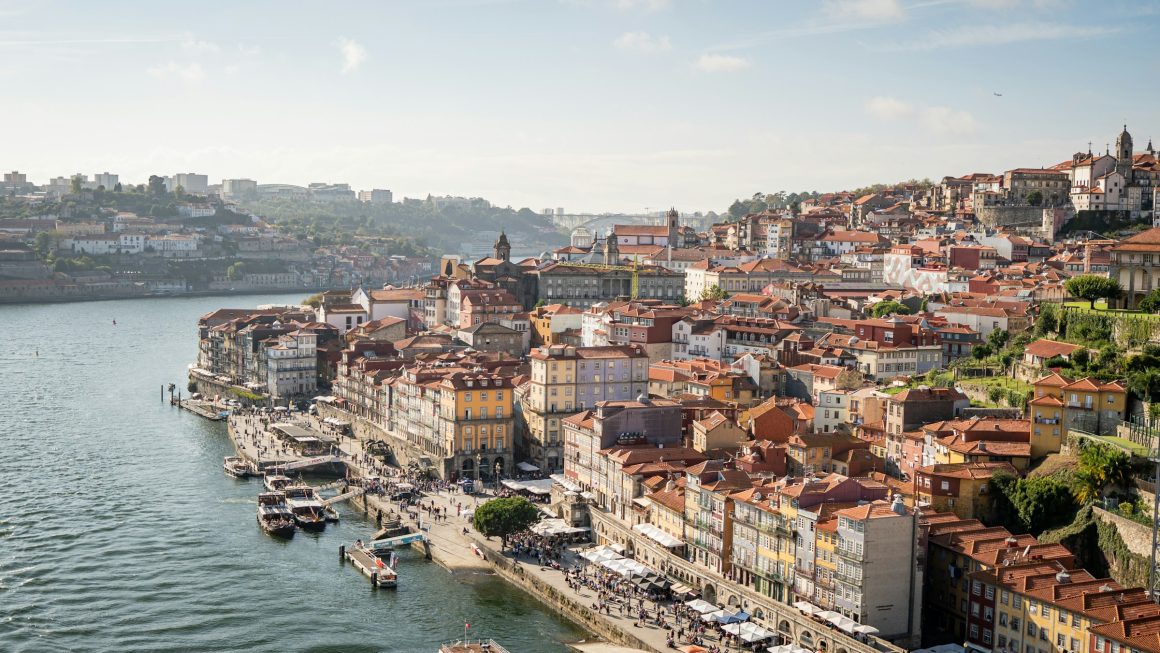

Portugal is one of the easiest countries in Europe to settle into. Lisbon and Porto are compact, creative, and English is widely spoken. Along the coast, small surf towns attract expats and digital workers. Prices have risen in recent years, but daily life still feels slower and more welcoming than in many European capitals.
Residency Basics
- EU citizens: Register locally with proof of address, sufficient funds, and private health insurance.
- Non-EU citizens: Two main visa routes exist:
- Digital Nomad (D8) visa: for remote workers with steady income. You must earn at least four times the Portuguese minimum wage (about €3,280/month in 2025).
- D7 visa: for those with passive income (pensions, investments, or savings).
How Taxes Work
Portugal’s newer innovation-focused tax regime (IFICI) applies to certain skilled professions, such as science, tech, teaching, and some health roles. If eligible, you pay a 20% income tax rate on that work.
Otherwise, residents are taxed as follows:
- Dividends: usually taxed at 28%, though you can opt into Portugal’s progressive income tax system instead.
- Capital gains: also generally taxed at 28% for individuals.
Examples:
A computer engineer hired by a Lisbon tech firm could qualify for the 20% IFICI rate, instead of higher progressive rates.
An online freelancer earning €4,000 per month can apply under the D8 visa, provided income is from non-Portuguese clients.
A retired expat with pension income might use the D7 visa, and if they also earn dividends, those are usually taxed at 28%.
If you sell shares or property abroad, capital gains tax will often apply at 28% unless special reliefs are available.
Key Points
- Portugal combines vibrant cities, Atlantic surf towns, and a large expat community.
- EU registration is straightforward (proof of funds, address, and health cover).
- Non-EU citizens can choose between D8 (remote work) or D7 (passive income) visas.
- The IFICI regime allows a 20% tax rate on qualifying skilled professions.
- 28% tax is typical on dividends and capital gains, unless you opt into progressive taxation.
More: Portugal.com, faccounting.pt
Bulgaria
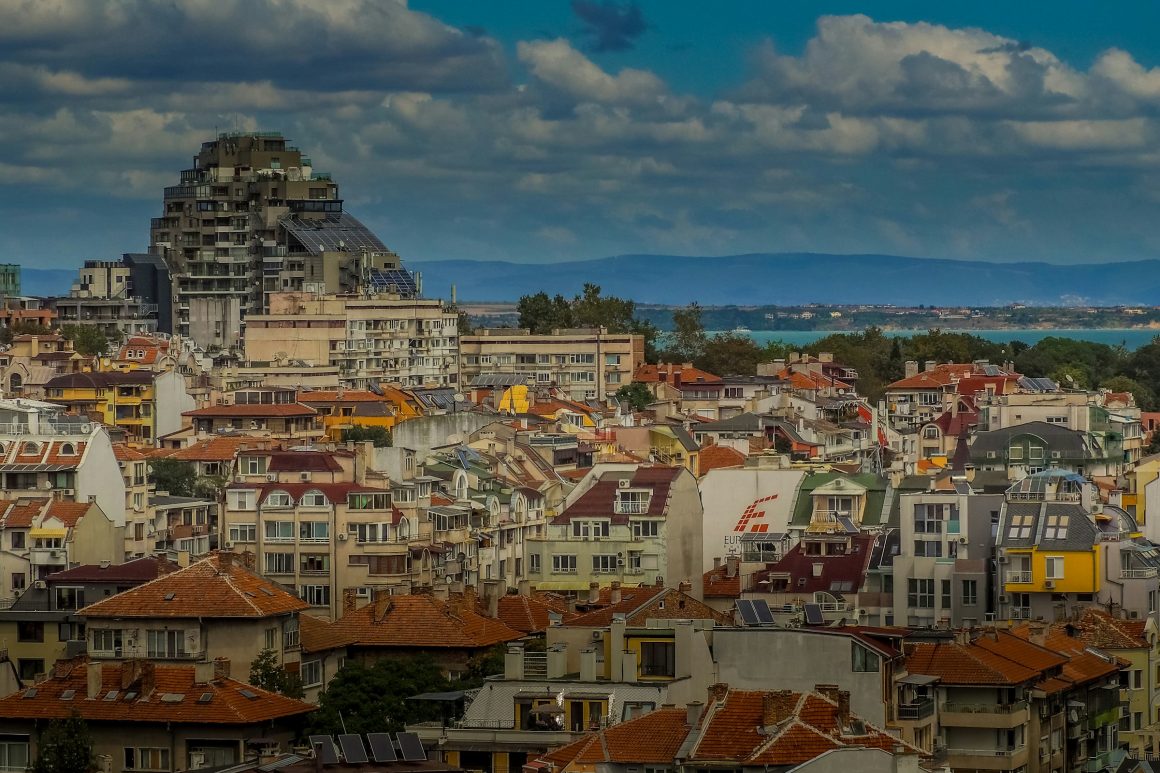

Bulgaria is one of the more affordable EU bases for digital, low-cost-focused entrepreneurs. Sofia and Plovdiv both have growing startup communities and a good supply of tech talent. English is widely spoken in business and tech circles, and Schengen travel is now easier for air and sea arrivals. On the lifestyle side, you can swap city life for the Black Sea coast, where towns like Sozopol offer a slower pace with history and beaches.
The trade-off: outside the major cities, services can feel slower, and bureaucracy is not always straightforward. Many expats use a local accountant or fixer to navigate official paperwork.
Residency Basics
- EU citizens: Registration is available on arrival; proof of address and funds is usually enough. The process is relatively quick compared to Southern Europe.
- Non-EU citizens: Most people rely on work, study, or business visas. Bulgaria is also used by some as a company setup base due to its low corporate and personal tax rates.
How Taxes Work
Bulgaria has one of the simplest tax systems in the EU:
- Personal income tax (PIT): Flat 10% on employment or self-employment income.
- Dividends: Usually 5% withholding tax. For some EU/EEA structures, dividend tax may be reduced or exempt at the company level.
Examples:
A software engineer in Sofia earning €40,000 pays a flat 10% (€4,000) in income tax.
A freelancer working with clients abroad also pays the same 10% flat rate on earnings.
An investor receiving €10,000 in dividends from a Bulgarian company would typically pay €500 (5%) in dividend tax.
A startup founder in Plovdiv can structure their company under EU/EEA rules that may lower or exempt dividend withholding.
Key Points
- Bureaucracy exists, but local accountants make it manageable.
- EU citizens can register quickly and live in Bulgaria without heavy paperwork.
- Flat tax system: 10% personal income, 5% on dividends in most cases.
- Costs of living are lower than in Western Europe.
- Attractive for freelancers, startups, and holding companies.
More: pwc.com
Romania
Romania offers a mix of affordability and scale. Bucharest feels like a major European capital with a lively startup and tech scene, while Cluj-Napoca is a student-driven hub that has become a center for developers and IT firms. Internet speeds are among the fastest in Europe, and flights connect easily to the rest of the continent.
Day-to-day costs are lower than in Western Europe—coffee, co-working memberships, and meals out remain affordable. English is widely spoken in tech and by younger people, though less so outside the main cities.
Residency Basics
- EU citizens: Registration is relatively simple—proof of address, sufficient funds, and health insurance are required.
- Non-EU citizens: Romania offers a digital nomad visa. To qualify, you need to show:
- Remote work for a foreign employer or clients abroad.
- A stable monthly income of at least €3,300.
- Proof of insurance and accommodation.
How Taxes Work
Romania applies a flat tax system:
- Personal income tax: Flat 10% on salaries and self-employment income.
- Dividends: Also taxed at 10% when distributed.
Examples:
A developer in Cluj earning €50,000 per year would pay €5,000 in tax (10%).
A remote worker on €4,000 per month could qualify for the digital nomad visa and pay 10% on that income.
An investor receiving €20,000 in dividends from a Romanian company would owe €2,000 (10%) in tax.
Key Points
- Big urban centers with strong startup and developer ecosystems.
- Very high internet speeds, lower costs than Western Europe.
- Flat 10% on income and 10% on dividends.
- EU residency is simple; non-EU nomads can apply with proof of income and remote work.
More: KPMG
Andorra
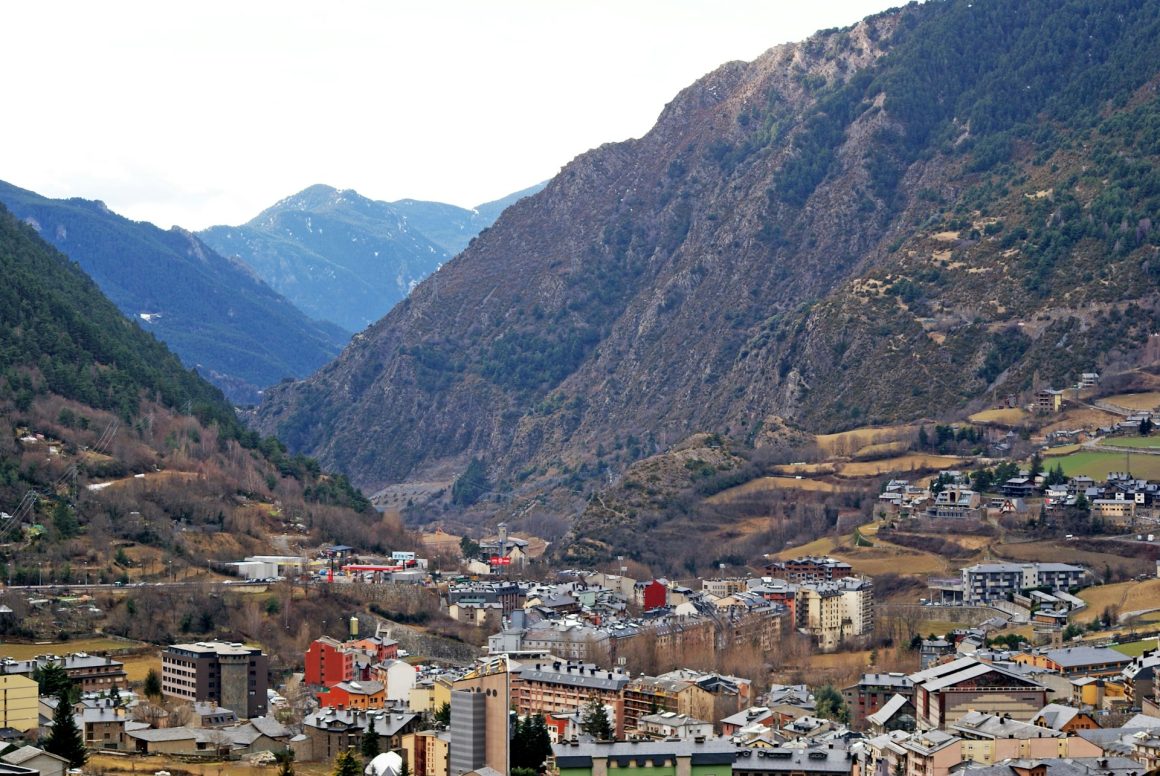

Andorra is a small mountain country wedged between Spain and France. Life here is calm, safe, and outdoorsy—skiing in winter, cycling in summer. Streets are clean, crime is rare, and local services are friendly once you’ve gone through the initial paperwork.
The trade-off is location: there’s no major airport, so international flights mean driving a few hours to Barcelona or Toulouse. Day-to-day, it feels more like a small town than a capital city.
Residency Basics
The most common path is passive residence. To qualify, you must:
- Invest at least €600,000 in Andorra (real estate, securities, or other approved assets).
- Place a deposit with the Andorran Financial Authority.
- Spend at least 90 days per year in the country.
This high entry cost makes it best for people already planning to invest or relocate long term.
How Taxes Work
Andorra has one of the lowest tax systems in Europe:
- Personal income tax: Flat, with a maximum of 10%.
- Dividends from Andorran companies: Exempt from tax for individuals.
Examples:
A remote professional earning €100,000 abroad would owe at most €10,000 in Andorran income tax.
An Andorran company owner receiving €50,000 in dividends pays 0% tax on that distribution.
Someone buying a €700,000 chalet in Ordino could meet the passive residence investment requirement.
Key Points
- Very low-tax environment: income tax capped at 10%, local dividends tax-free.
- Passive residence requires tying up ~€600,000 in assets, plus a state deposit.
- Safe, scenic lifestyle with strong resident services.
- Downsides: no airport, reliance on road travel, and high capital requirement before fully committing.
More: Agisa, efd.admin.ch
Locals Insider spoke with the founder and CEO of a company that develops WordPress templates. A serial digital entrepreneur, he explained why he chose Andorra over other relocation options as a high-income, high-net-worth individual with a family. Here’s how he put it:
“Corporate tax is 10% and dividend tax is 0. I got residency and bought an apartment—it’s very affordable compared to Spain. Setting up a company is easy online. I had been searching for a relocation from Russia and researched many places. Buenos Aires was too far away, Malta too small and not great for children, Hungary has no sea.
So I applied for Spain’s golden visa and bought a flat there, but for my company I chose Andorra, just three hours from Barcelona. I like being close to both Spain and France. I walk in the mountains, spend weekends at the sea, and enjoy the city.
Andorra has a bit of a village feeling—but with sports cars. I split my time: less than six months in Barcelona, but most of it in Andorra where the company and employees are. I also run offices from Malta, Armenia, and Georgia.”
Monaco
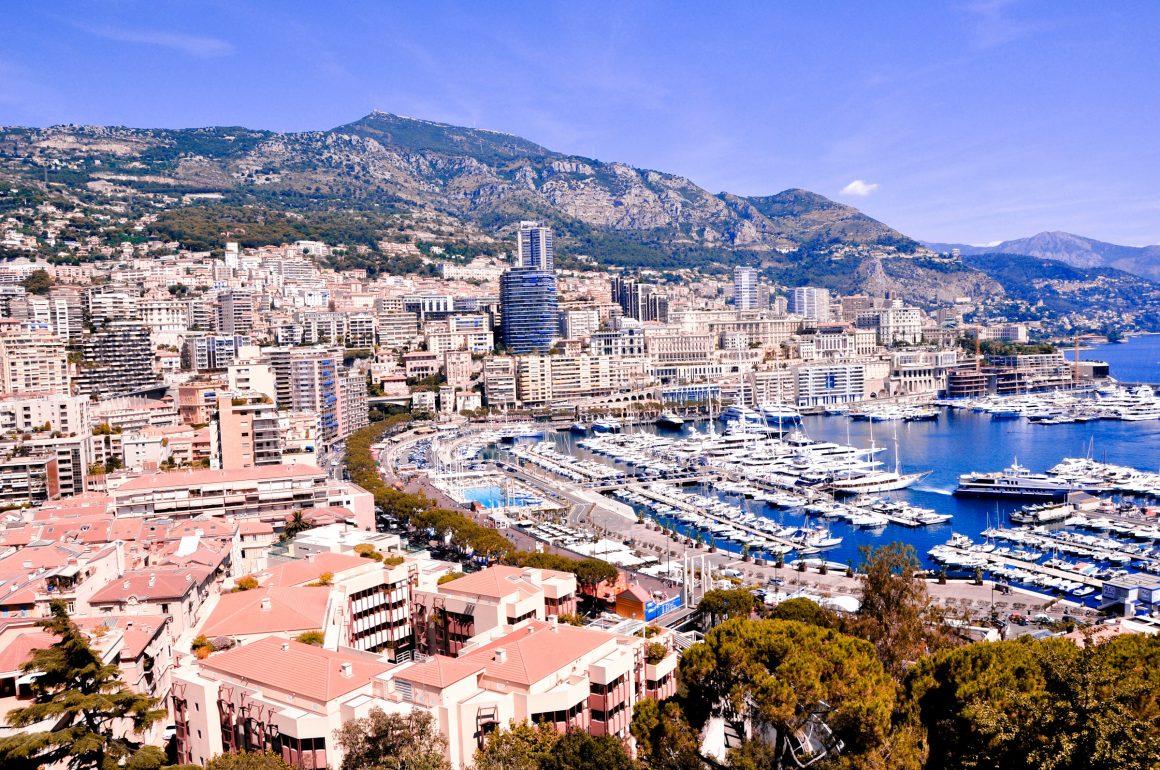

Monaco is a city-state on the French Riviera, known for its compact size, high security, and luxury lifestyle. Life here revolves around the harbor, concerts, sporting events, and a high-end social scene. Services are polished, transport connections are excellent, and daily life is seamless—if you can manage the cost of housing.
Residency Basics
To become a resident, the key requirements are:
- Accommodation: You must either buy or rent property in Monaco.
- Financial means: Show proof that you can support yourself (bank resources are checked, but there is no fixed public minimum).
- Banking: Local banks conduct thorough checks before accounts are opened.
Residency is therefore more about showing stability and means than meeting a published income threshold.
How Taxes Work
Monaco is famous for having no personal income tax for residents. Other highlights:
- 0% personal income tax for most nationalities.
- Exceptions: Some French citizens remain taxable under bilateral treaties.
- Wealth and capital gains: Not taxed for individuals.
Examples:
A business consultant earning €500,000 abroad pays 0% personal income tax in Monaco.
An investor selling shares worth €2 million owes no capital gains tax.
A French citizen moving to Monaco may still face French tax obligations under treaty rules.
Key Points
- Ultra-safe, highly connected microstate with luxury services.
- 0% personal income tax for most residents.
- No wealth or capital gains tax.
- Residency requires housing in Monaco and proof of means.
- Costs—especially real estate—are among the highest in Europe.
Locals Insider spoke with an executive from a publicly traded tech company who spent many years living in Monaco before returning to his home country, the United States. This is what he told us about life in the tax-haven principality:
“To get a bank to cut you the reference letter they usually ask for EUR 500,000 cash/liquid securities on deposit. It’s a brilliant and special place but not without its faults. You will love it for the first few years, no doubt. Most people decide it is not for them after 3–4 years. It is a great base but not really a place to spend 12 months of the year.
They speak English and you can email them. If you have all the documents, contact them and book an appointment … you have to rent the apartment in Monaco first, before you can even apply for residency.”
Switzerland


Switzerland is known for order, precision, and stability (not boredom). Each canton has its own tax rules and regulations. Zurich, Geneva, and Basel airports connect globally, while trains run on time down to the minute. Life is clean and well-structured—healthcare, schools, and public services are consistently ranked among the best in Europe.
Outdoors, skiing, hiking, and lake swimming are a part of everyday culture. The trade-off is cost: Switzerland is expensive, and the social rhythm can feel quiet compared to more Mediterranean countries. English is widely understood, but day-to-day life is conducted in German, French, or Italian, depending on the canton.
Residency Basics
- Employment-based: Most residents arrive with a job contract.
- Self-sufficient route: Applicants can qualify by showing significant assets and the ability to support themselves. To open a company in Switzerland you will need to hire a local resident as a director.
- Lump-sum taxation: Reserved for high-net-worth individuals, negotiated directly with a canton, and based on lifestyle expenses rather than declared income.
How Taxes Work
Switzerland’s system varies by canton, but broadly:
- Ordinary residents: Progressive federal, cantonal, and municipal tax. Most professionals pay an effective rate of 22–28%, depending on canton.
- Dividends: Taxable, though relief applies for substantial shareholdings.
- Capital gains: Private gains on shares are usually tax-free unless authorities classify you as a professional trader.
- Wealth tax: A modest annual tax on net assets applies, with rates varying by canton.
Examples:
A banker in Zurich earning CHF 200,000 might pay around CHF 50,000 (25%) in total taxes.
An investor selling CHF 1 million in shares pays 0% capital gains tax if treated as a private investor.
A high-net-worth applicant negotiating lump-sum taxation in Vaud could be taxed based on estimated lifestyle spending (e.g., CHF 400,000 per year), regardless of actual global income.
Key Points
- Strong legal certainty, healthcare, education, and safety.
- Effective tax for most professionals: 22–28%, lower than many EU countries.
- Capital gains on private investments are tax-free.
- Outdoor lifestyle is exceptional, but costs of living are very high.
Gibraltar
Gibraltar is a small British Overseas Territory on the southern tip of Spain. English is the official language, the pound sterling is used, and the legal system follows UK law. It feels like a walkable city-state: compact, busy, and connected. You can day-trip into Spain or fly directly to London. That is why many businesses, particularly in the online/digital sectors, operate here; for instance, UK-betting firm Bet365 has an office here.
Space is limited, so housing is expensive, and the community is close-knit. The lifestyle is social and outdoors-oriented, with a mix of British and Mediterranean influences.
Residency Basics
The main route for high-net-worth individuals is Category 2 residency. Applicants must show proof of accommodation in Gibraltar and sufficient financial resources.
There’s also the HEPSS scheme, aimed at senior executives with specialist skills.
How Taxes Work
Gibraltar stands out for its capped and simplified system:
- Category 2 residency: Taxable income is capped at £118,000, which means a maximum annual tax bill of about £42,380.
- HEPSS scheme: Income tax is charged only up to £160,000 of earnings, making it attractive for well-paid specialists.
- Capital gains, inheritance, and many forms of investment income: Not taxed.
Examples:
A Category 2 resident earning £500,000 per year pays no more than ~£42,380 in tax.
A tech executive under HEPSS with £250,000 salary is taxed only on the first £160,000, with the rest ignored.
An investor selling shares abroad pays 0% capital gains tax in Gibraltar.
Key Points
- Housing supply is tight, so accommodation costs can be high.
- Compact, walkable, English-speaking territory using the pound.
- Category 2 residency: capped tax of about £42,380 per year.
- No capital gains or inheritance taxes.
Best Low-Tax Bases in Europe for Digital Entrepreneurs (2026): TOP Cities & Countries
| Country | Key Cities | Why It’s Attractive |
|---|---|---|
| Malta | Valletta, Sliema, St. Julian’s | English-speaking, remittance tax system, no tax on foreign capital gains |
| Cyprus | Limassol, Paphos, Nicosia | 0% tax on dividends/interest for non-doms, affordable lifestyle |
| Greece | Athens, Thessaloniki | €100k flat tax on all foreign income (15 years), EU base |
| Italy | Milan, Florence, Bologna, Lake Como | €200k flat tax on foreign income, cultural hubs |
| Portugal | Lisbon, Porto, coastal surf towns | 20% IFICI regime for skilled work, D8/D7 visas for nomads |
| Bulgaria | Sofia, Plovdiv, Sozopol | 10% flat income tax, 5% dividend tax, very low costs |
| Romania | Bucharest, Cluj-Napoca | 10% flat tax on income and dividends, fast internet, low costs |
| Andorra | Andorra la Vella, Ordino | ≤10% income tax, 0% on local dividends, safe mountain base |
| Monaco | Monte Carlo | 0% personal income and capital gains tax, luxury lifestyle |
| Switzerland | Zurich, Geneva, Basel | Effective 22–28% tax (lower than EU), lump-sum option for HNWIs |
| Gibraltar | Gibraltar Town | Category 2 residency caps tax (~£42k), 0% capital gains tax |
Comparing Residency, Personal Taxes, and Business Structures
Once you’ve read through the country profiles, you probably want to see how they line up against each other in a clear, side-by-side way. That’s what this section is for.
We’ve broken things into three tables:
- Residency programs – who qualifies, how easy it is to register, and what the main routes are for EU vs. non-EU citizens.
- Personal taxation – how your salary, dividends, and capital gains are treated as a resident.
- Business taxation – what to expect if you register or run a company locally, including typical corporate tax rates and quirks.
The goal isn’t to replace local legal advice, but to give you a practical comparison of the main numbers and rules across popular hubs. This way you can quickly see where life, work, and taxes might actually fit together for you.
Got it — right now your table is very dense and mixes multiple layers of comparison. The best way to make this digestible in a magazine-style article is to split the comparisons into three clearer tables:
Residency Programs for Digital Businessmen in Europe: Requirements and Routes
Disclaimer: Residency requirements change often and can depend on your nationality. This table is a simplified overview and should not be taken as legal advice. Always confirm details with immigration authorities or licensed advisors before applying.
| Place | Program / Route | EU Citizens | Non-EU Citizens |
|---|---|---|---|
| Malta | Ordinary residence; TRP; NRP | Simple registration, proof of means & health cover | Nomad Residence Permit (€42k/yr income) |
| Cyprus | MEU1 “Yellow Slip”; Digital Nomad Visa | Apply within 4 months, show work/savings | Digital Nomad Visa (€3,500/month net income) |
| Greece | Standard residence; Article 5A non-dom | Register if 90+ days | Digital Nomad Visa (remote work, income proof) or property investment routes |
| Italy | New resident flat tax | Standard registration | Investor/entrepreneur routes; flat tax available if resident |
| Portugal | Local registration; IFICI regime | Routine | Digital Nomad Visa (remote workers, income proof) |
| Bulgaria | Standard EU registration | Routine | Work permits / DNV less common |
| Romania | Local registration | Routine | Digital Nomad Visa (€3,300+/month) |
| Andorra | Passive residence | N/A | Requires ~€600k investment + deposit |
| Monaco | Residency tied to housing + means | Same as non-EU | Bank reference & housing first |
| Switzerland | Employment/self-sufficiency | Job contract or proof of funds | Lump-sum taxation route for HNW |
| Gibraltar | Cat 2 / HEPSS | Easy EU mobility | Requires approval, usually for HNW or specialist execs |
Taxes for Digital Nomads in Europe: Income, Dividends, and Capital Gains
Disclaimer: Tax rules shift frequently, and actual liability depends on personal circumstances, treaties, and how income is structured. This table shows broad resident-level treatment only. Check local tax advisors for exact rates and exemptions.
| Place | Personal Income Tax | Dividends | Capital Gains |
|---|---|---|---|
| Malta | Malta-source taxed; foreign income only if remitted | Taxed if remitted (up to 35% unless TRP) | Foreign capital gains not taxed, even if remitted |
| Cyprus | PIT 0–35% bands | 0% SDC for non-doms (up to 17 years) | No Capital gains tax except on local property |
| Greece | €100k flat on foreign income (15 years) | Covered by €100k flat | Greek-source gains taxed |
| Italy | €200k flat on foreign income (15 years) | Covered by €200k flat; outside 26% | CGT applies outside flat regime |
| Portugal | 20% on eligible IFICI work; standard progressive otherwise | 28% typical | Standard rules, varies |
| Bulgaria | 10% flat PIT | 5% WHT (some EU exemptions) | CGT exemptions on some shares |
| Romania | 10% PIT | 10% dividends | Standard CGT applies |
| Andorra | PIT ≤10% | 0% local dividends | Limited CGT |
| Monaco | 0% PIT | 0% | No CGT for individuals |
| Switzerland | 22–28% typical effective | Taxed, relief for big shareholdings | Private share gains usually tax-free |
| Gibraltar | Cat 2 capped at ~£42k; HEPSS capped | Most investment income exempt | No CGT |
Running a Business Abroad: Corporate Tax and Startup Setups for Nomads
Disclaimer: Corporate and business taxes differ based on company type, turnover, and activity. This table highlights general frameworks but does not cover all exceptions. Professional advice is essential before registering or relocating a business.
| Place | Corporate Tax | Notes |
|---|---|---|
| Malta | 35% nominal, but refund system reduces effective to 5–10% | Widely used holding/operating structures |
| Cyprus | 12.5% | Popular holding jurisdiction |
| Greece | 22% corporate | Standard EU setup |
| Italy | ~24% IRES + regional surtaxes | Flat tax regime is personal, not corporate |
| Portugal | 21% corporate (lower for SMEs) | IFICI applies to personal income |
| Bulgaria | 10% | Among EU’s lowest |
| Romania | 16% (1%/3% for micro-companies) | Simple SME rules |
| Andorra | 10% corporate | Low, paired with 0% dividends |
| Monaco | 25% corporate if >75% turnover outside Monaco | No PIT |
| Switzerland | 12–21% effective depending on canton | Highly cantonal |
| Gibraltar | 12.5% corporate on local income | Simple |
Glossary for People Who Don’t Speak Tax: Basic Terms Explained
Non-dom (non-domiciled): This means you live in a country but are not considered “domiciled” there for tax purposes. Governments often use this to give foreigners lighter taxes on money they earn abroad. Example: In Cyprus or Malta, a non-dom might only pay tax on local income, while foreign dividends or interest stay untaxed.
Remittance basis: You’re only taxed on income made in the country you live in, plus foreign income you bring into the country. If you keep foreign earnings abroad, they’re usually not taxed. Example: In Malta, if you earn money from the U.S. but never transfer it to Malta, you don’t pay Malta tax on it.
Flat tax: Instead of paying tax based on your actual earnings, you pay one fixed amount per year to cover all foreign income. Example: Italy charges newcomers €200,000 per year, no matter how much foreign income they make.
Lump-sum taxation: Rather than taxing your income, the country charges tax based on your estimated living expenses or lifestyle. This is usually reserved for wealthy foreigners who don’t work locally. Example: In Switzerland, some cantons let you pay tax based on what it costs you to live there instead of your actual income.
Tax caps (income limits): Certain places limit how much of your income is taxed, no matter how much you make. Example: In Gibraltar, Cat 2 residents never pay more than about £42,000 in tax per year.
A few closing notes
- Rules move—especially Portugal’s post-NHR landscape and Romania’s 2025 dividend change. Double-check before structuring. (taxsummaries.pwc.com, KPMG)
- “Residency” and “tax residency” are not always the same, and treaties can change outcomes.
- If you’ll keep operating a business, weigh where company profits land (corporate tax) vs. where you live (PIT/dividends).
If you want, I can tailor a short-list based on your travel rhythm (beach city vs. alpine), company setup, and where your dividends actually come from.









